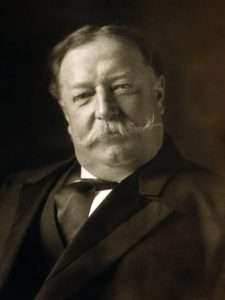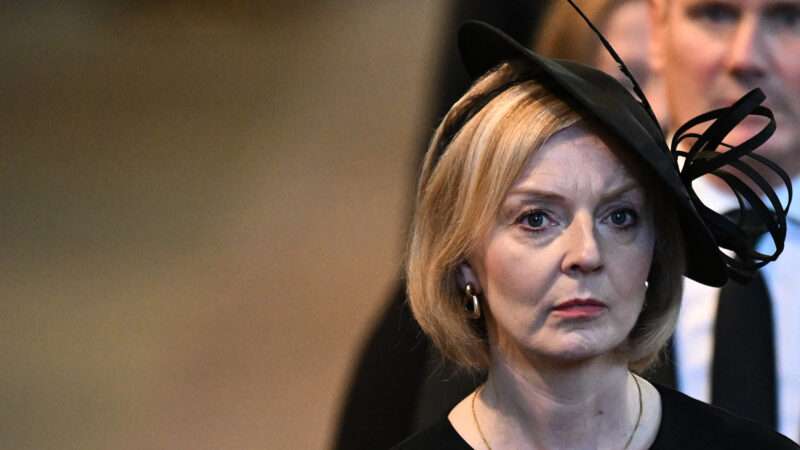
“Stupid, just stupid,” said one GOP strategist. Earlier this week, the Reason Roundup covered South Carolina Republican Sen. Lindsey Graham’s expected national abortion ban bill. Graham indeed introduced such legislation on Tuesday. His bill would make it a felony punishable by up to five years in prison to perform an abortion at or after 15 weeks gestation. There would be exceptions for pregnancy by rape and incest, as well as when a pregnant woman’s health was at risk, but no exceptions for severe fetal birth defects or a mother’s health. States would be free to enact stricter laws if they wished, but not more liberal rules.
Graham’s bill is purely politics, at this point. There’s no chance that it will become law. Graham has said that he hopes the bill will work as a midterm election rallying point for Republicans.
But many Republicans are none too happy about that. A person NBC News identifies as “a top Republican strategist involved in Senate campaigns” called Graham’s move “stupid, just stupid.” Senate Minority Leader Mitch McConnell (R–Ky.) said, “I think most of the members of my conference prefer that this be dealt with at the state level.” Sen. Shelley Moore Capito (R-W.Va.) told Politico, “I’m not sure what [Graham is] thinking here. But I don’t think there will be a rallying around that concept.” Chris Mottola, a GOP strategist and ad maker, called it a “bad idea,” telling NBC News “it rips open a political sore. The political environment was moving back to economic issues. It further nationalizes an issue that works against Republicans generically.”
Democrats “could hardly believe their political good fortune” when Graham and other Senate Republicans proposed a national abortion ban, writes The Washington Post‘s Jennifer Rubin.
An abortion ban proposal that institutes criminal penalties, contains no exceptions for maternal health or fetal abnormalities, and backtracks on the GOP’s longtime assertion that abortion policy should be left up to the states is gold for Democrats itching to characterize their opponents as extremists on this issue (and to turn election-season attention toward abortion, rather than topics like inflation).
And voters seemed primed to hear this message. In a recent poll, nearly half (48 percent) of respondents said Democrats were better at handling “abortion policy,” while only 27 percent said Republicans were. People also indicated that the Supreme Court’s June ruling overturning Roe v. Wade (1973) would make them more likely to vote. More voters—in general, and particularly among independents—have started feeling more positively toward Democrats.
Graham’s move seems much more likely to motivate people already likely to vote Democrat and steer more independents that way than to motivate Republicans, who are happily instituting state-level bans (many of which go further than Graham’s proposal would).
Even if many Republicans do wish to leave abortion issues up to the states, Democrats have wasted no time honing in on the message that Graham’s bill shows Republicans’ true colors.
“Proposals like the one today send a clear message from MAGA Republicans to women across the country: your body, our choice,” said Senate Majority Leader Chuck Schumer (D–N.Y) on the Senate floor.
“It’s great that [Republicans are] showing the American people that they’re really focused on taking away a fundamental right,” Sen. Gary Peters (D–Mich.) said.
“The nationwide abortion ban proposal put forth today is the latest, clearest signal of extreme MAGA Republicans’ intent to criminalize women’s health freedom in all 50 states and arrest doctors for providing basic care,” said House Speaker Nancy Pelosi (D–Calif.) in a statement. “Make no mistake: if Republicans get the chance, they will work to pass laws even more draconian than this bill – just like the bans they have enacted in states like Texas, Mississippi and Oklahoma.”
The bill isn’t just potentially politically toxic but constitutionally suspect, too. It’s “based on an audacious claim of congressional authority to regulate abortion that obliterates the constitutional distinction between state and federal powers,” notes Reason‘s Jacob Sullum. But the Constitution “does not give Congress the authority to regulate abortion or any other medical practice,” points out Sullum. He also notes that if Congress can ban abortion because of the Commerce Clause, it can also say states cannot ban it.
It’s also out of step with European countries’ policies, even though Republicans keep claiming it puts us in line with them.
“Republicans tend to talk about bills that set a deadline for abortion around the end of the first trimester as being similar to laws that prevail in Western Europe, but by not offering a broader health exception, Graham’s bill would impose a significantly tighter restriction,” notes Josh Barro.
Meanwhile, Michelle Goldberg, a New York Times opinion columnist, points out that bans in Europe tend to contain exceptions for fetal abnormalities.
“Why did Graham leave such an exception, which the vast majority of Americans would almost certainly support, out of his proposed abortion ban?” she asks. “There are two possibilities, which are not mutually exclusive. Either he was pandering to the anti-abortion activists who, on Monday, sent a letter to Congress demanding federal action against states with liberal abortion laws, or he simply hasn’t thought very much about what pregnancy entails.”
In other abortion-related news:
• A judge has temporarily halted Ohio’s six-week abortion ban.
• West Virginia this week “passed a bill to prohibit nearly all abortions, making it the second state to pass a new ban since the Supreme Court reversed Roe v. Wade in June,” notes The Washington Post.
• An Indiana ban on almost all abortions—passed in August—takes effect today.
FREE MINDS
Today in Orwellian phrasing: “court-ordered care.” By which California means it will order people with mental illnesses into treatment. This could mean forcing them to take medication or to live in special housing. The process will take place through a new “CARE Court.”
“CARE Court will not solve the complex issues of homelessness in California, nor will it meet the needs of unhoused people with mental health disabilities – primarily because the investment of funds is in a new court system,” wrote the American Civil Liberties Union of California and dozens of disability rights, homeless advocacy, and mental health groups in an open letter to Gov. Gavin Newsom. “Concerningly to us, because of California’s nationwide leadership role, a harmful policy like CARE Court is likely to be replicated across the country.”
Today, @CAGovernor has taken California back to the days of forced treatment. There is nothing “caring” about his so-called “CARE Court” bill. Civil and disability rights advocates around the state agree: this plan is ethically and legally wrong.
— ACLU SoCal (@ACLU_SoCal) September 14, 2022
FREE MARKETS
Railroad strike averted? The looming shutdown of the U.S. freight rail industry yesterday, spurred by strike-eyeing railroad workers, seems to have been averted for now. “Freight rail companies and unions representing tens of thousands of workers reached a tentative agreement to avoid what would have been an economically damaging strike, after all-night talks brokered by Labor Secretary Martin J. Walsh,” The New York Times reports. “The agreement now heads to union members for a ratification vote, which is a standard procedure in labor talks. While the vote is tallied, workers have agreed not to strike.”
QUICK HITS
JUST IN: By a 5-4 vote, the Supreme Court DENIES Yeshiva University's emergency request to intervene now in a dispute over whether the university must recognize an LGBTQ student group. Roberts and Kavanaugh join with Sotomayor, Kagan, and Jackson. https://t.co/tSYEcHHAZR pic.twitter.com/ptI8nF6NEa
— SCOTUSblog (@SCOTUSblog) September 14, 2022
• Could more children—especially more boys—benefit from delayed schooling?
• “Russian forces have targeted a dam on the Inhulets River near Kryvyi Rih—President Volodymyr Zelenskyy’s home city—with eight cruise missiles, according to Ukrainian officials, leading to flooding in parts of the city and residents being evacuated,” reports CNBC.
• Economist Emily Oster unpacks pandemic test score declines.
• Virginia Postrel challenges you to imagine the future.
• New Jersey’s plastic bag ban now has reusable bags piling up.
• California is bringing (another) contrived antitrust suit against Amazon.
• “An Iowa judge ruled Tuesday that a girl who was 15 when she killed a man she said raped her multiple times must pay his family $150,000 in restitution,” reports CNN.
• Hiring formerly incarcerated people is good, actually, Reason‘s Billy Binion writes.
• How government officials bully social media companies into censorship.
The post National Abortion Ban Proposal Divides Republicans, Excites Democrats appeared first on Reason.com.
from Latest https://ift.tt/5FD382o
via IFTTT



